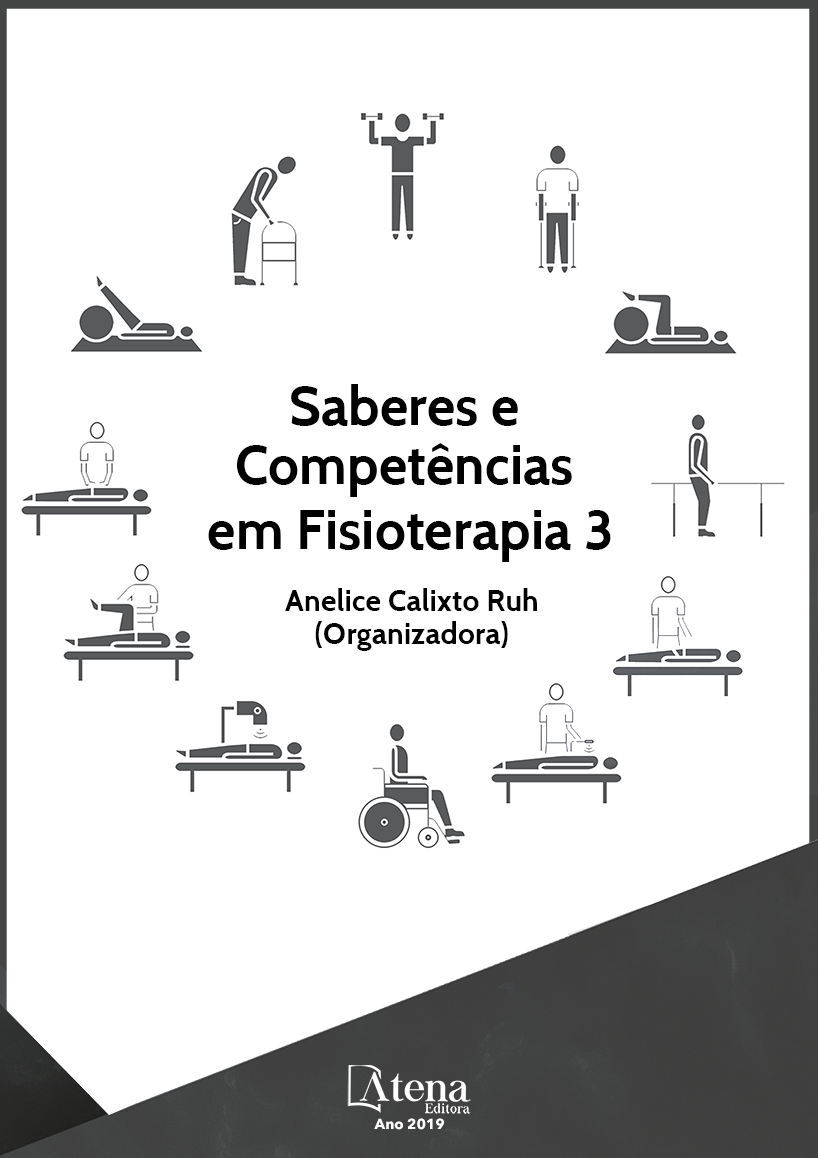
FATORES DE RISCO PARA DORES LOMBARES EM UNIVERSITÁRIOS DO CURSO DE FISIOTERAPIA
Introdução: A dor lombar (DL) é
uma alteração musculoesquelética, que gera
morbidade e incapacidade na população
em geral, por causas frequentes, sendo
elas congênitas, inflamatória, degenerativa,
mecânico-postural, obesidade entre outros.
Objetivo: Conhecer os fatores de risco de DL
em universitários do começo do curso (CC) e
meio do curso (MC) de fisioterapia, verificando
a presença de DL e evolução no decorrer do
curso. Materiais e métodos: Estudo transversal,
realizado na UNILEÃO em Juazeiro do Norte
no curso de fisioterapia. Foram inclusos
universitários do CC e MC que responderam o
questionário e exclusos os que não obedeceram
os critérios citados. Resultados e discussão:
A maioria dos participantes foram do sexo
feminino com 72,90% do geral, com média de
idade de 20,2 com dp de 4,9±. Prevalência de
DL de 68,20% do geral. No geral identificamos
a posição sentada mais adotada para estudos
em casa apresentando 61,20% e 95,30% para
estudo na sala de aula. Observamos que no CC
a posição sentada adota uma postura curvada
c/apoio dos pés com 54,50% e s/apoio 21,80%.
No MC apresentaram a postura curvada c/apoio como a mais adotada representando
33,30% e s/apoio 30,00%. O modo carregar os materiais nos ombros representou
49,40%, sendo no CC com 49,10% e 50,00% no MC. Na prática de atividade física
72,70% não praticam nenhuma no CC e 66,70% no MC. Conclusão: Alta prevalência
de DL relacionada a posição sentada por tempo prolongado, postura curvada sentada,
carregar mochilas nos ombros, inatividade física e o estilo de vida durante a formação.
FATORES DE RISCO PARA DORES LOMBARES EM UNIVERSITÁRIOS DO CURSO DE FISIOTERAPIA
-
DOI: 10.22533/at.ed.44019200813
-
Palavras-chave: Dor Lombar; Estudantes; Fatores de Risco; Pesquisa; Universidade.
-
Keywords: Lumbar Pain; Students; Risk factors; Search; University
-
Abstract:
Introduction: Lumbar pain (DL) is a musculoskeletal alteration, which
generates morbidity and disability in the general population, due to frequent causes,
being congenital, inflammatory, degenerative, mechanical, postural, obesity, among
others. Objective: To know the DL risk factors in university students at the beginning of
the course (CC) and the middle course (MC) of physiotherapy, verifying the presence
of DL and evolution during the course. Materials and methods: A cross-sectional study,
conducted at UNILEÃO in Juazeiro do Norte, Brazil, in the physiotherapy course. We
included university students from CC and MC who answered the questionnaire and
excluded those who did not meet the above criteria. Results and discussion: The majority
of the participants were females with 72.90% of the overall, with mean age of 20.2 with
SD of 4.9 ±. Prevalence of DL of 68.20% of the overall. In general, we identified the
most used sitting position for home studies presenting 61.20% and 95.30% for study in
the classroom. We observed that in the CC the sitting position adopts a curved posture
with foot support with 54.50% and s / support 21,80%. In MC they presented the curved
posture with support as the most adopted representing 33,30% and s / support 30,00%.
The mode of carrying the materials on the shoulders represented 49.40%, being in the
CC with 49.10% and 50.00% in the MC. In the practice of physical activity, 72.70% did
not practice any in CC and 66.70% in MC. Conclusion: High prevalence of DL related to
long-term sitting, curved sitting posture, carrying backpacks on the shoulders, physical
inactivity and lifestyle during training.
-
Número de páginas: 15
- Ianny Mara Lima Evangelista
- Maria Edilania Cavalcante Pereira
- Rachel Hercília Lima Guimarães
- Viviane Pinheiro Oliveira
- João Marcos Ferreira de Lima Silva
- Rejane Cristina Fiorelli de Mendonça
- Paulo César de Mendonça
- Geline de Freitas Sousa


